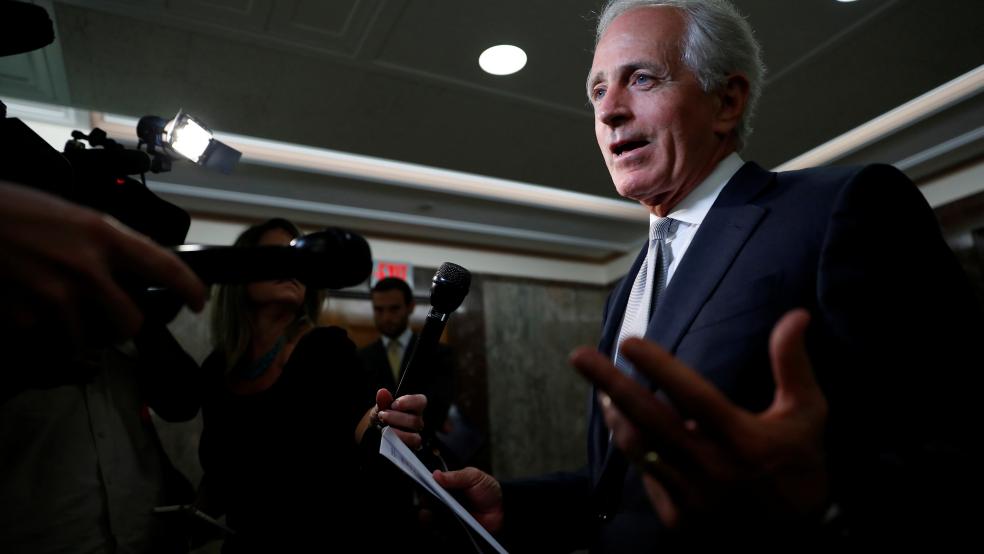The Republican tax bill looks set to pass next week, possibly with unanimous GOP support, after Republican Sens. Marco Rubio and Bob Corker both said Friday they’ll vote yes.
Rubio said he’ll support the bill after changes were made to the child tax credit (more on that below). Corker was the only Republican to break ranks when the Senate approved its version of the bill earlier this month, essentially making him the last deficit hawk standing in the Senate GOP caucus. Corker had said he would not vote for a plan “adding one penny to the deficit” and he called the rising national debt “the greatest threat to our nation.” He explained Friday why he is now supporting the massive tax cuts, despite the $1 trillion or more they’ll add to that debt:
“After great thought and consideration, I believe that this once-in-a-generation opportunity to make U.S. businesses domestically more productive and internationally more competitive is one we should not miss,” he said in a statement, adding, “In the end, after 11 years in the Senate, I know every bill we consider is imperfect and the question becomes is our country better off with or without this piece of legislation. I think we are better off with it. I realize this is a bet on our country’s enterprising spirit, and that is a bet I am willing to make.”
Lawmakers working to merge the House and Senate versions of the bill signed off on it earlier Friday following a last-minute tweak to expand the child tax credit. Republican tax writers had proposed to double the credit to as much as $2,000 per child, but many families would not have qualified for the full amount, with some only getting up to $1,100.
The final version of the bill increases the refundable portion from $1,100 to $1,400, a move intended to win back the support of Sen. Marco Rubio of Florida, who criticized the tax writers for prioritizing the wealthy and corporations over working families and said he would vote no on the final bill without a “meaningfully higher” portion of the credit being refundable.
The changes were enough to secure the votes of Rubio and Sen. Mike Lee of Utah, who had also pushed for a more generous credit, even though they reportedly did not include one tweak the two senators had sought: making the credit refundable from the first dollar earned instead of earnings above $2,500, which would have put more money in the pockets of the lowest-income earners.
It wasn’t immediately clear how Republicans offset the increased cost of the expanded credit.





